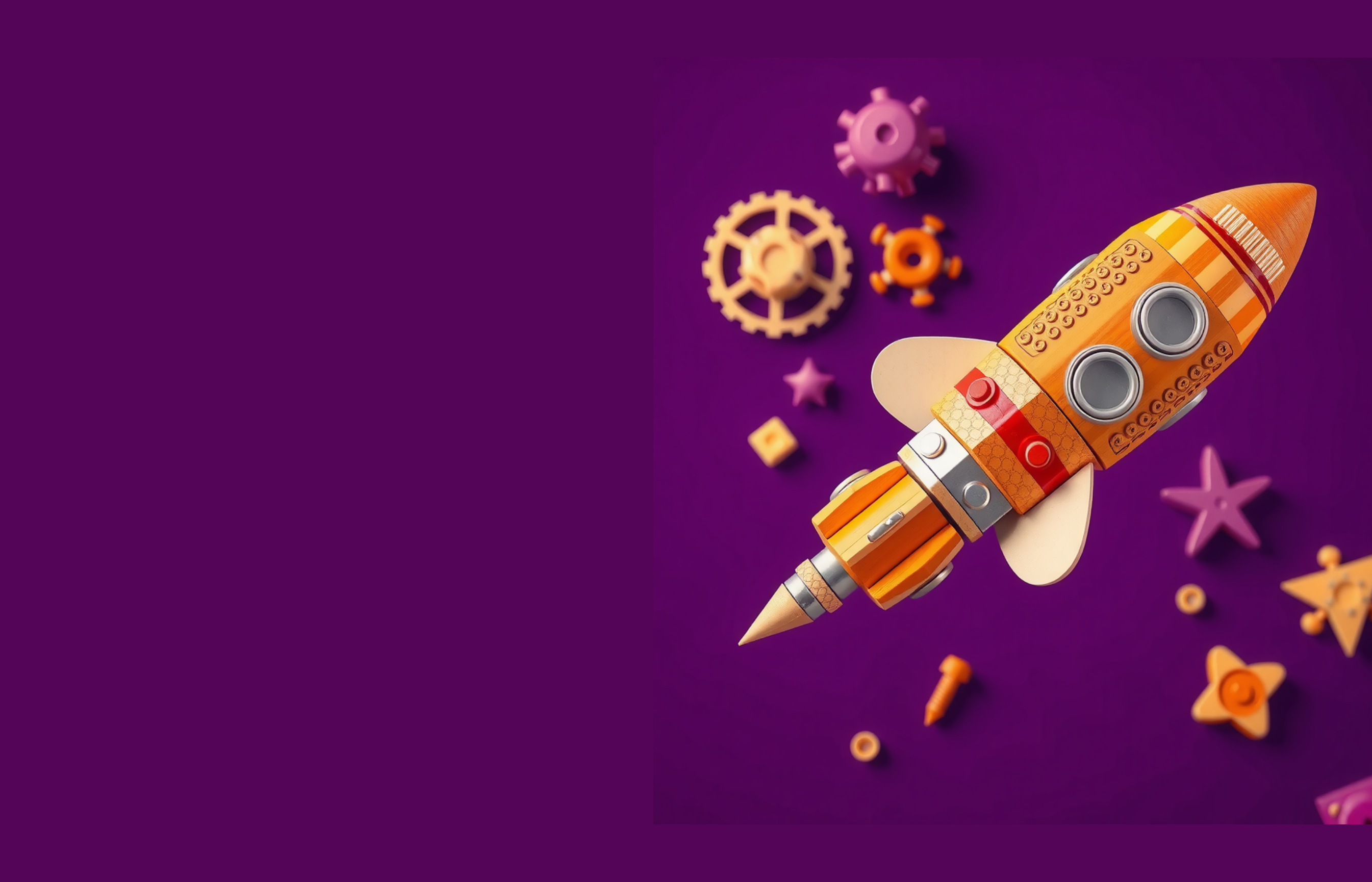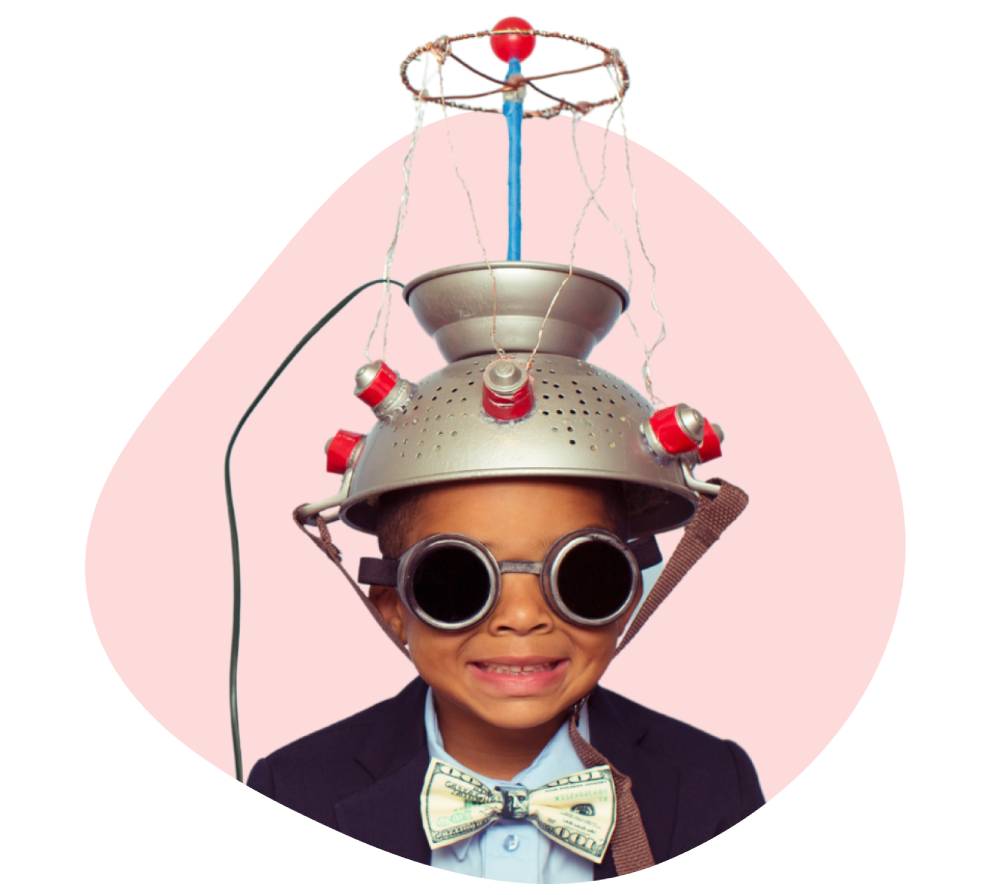
In line with this objective, i4KIDS announces the launch of the 2nd edition of the ACCELERATION PROGRAMME (2025), extending invitations to five eligible projects dedicated to positively influencing the future of children and mothers.

The timeline for the 2025 edition of the programme is as follows:
Key Dates
- April 10th, 2025: Call for projects.
- May 18th, 2025: End of the call for projects.
- By the end of May, the five projects selected to join the Acceleration Programme will be announced.
- June 2nd, 2025: Kick-off meeting and start of the programme for the participants.
- November 20st, 2025: End of classes and Pitch competition during the Pediatric Innovation Day.
- December 19th, 2025: End of Valorisation Phase.

Format of Sessions
- Group Classes (Masterclasses): Held online between 15:00 and 18:00 CEST, with a maximum duration of 1.5 to 2 hours. This schedule aims to facilitate coordination among all participants.
- One-to-One Mentoring Sessions: Scheduled individually, considering the availability of both participants and assigned mentors or consultants. This flexible approach helps accommodate different commitments and ensures personalized support.
Validation phase. June and July
The Validation phase is designed to validate early-stage innovation projects (TRL 2 to 4) by confirming their value proposition through a structured approach comprising the following steps:
- Specialized Training: Participants engage in a specialized training programme that guides them through the key stages of healthcare innovation—from identifying unmet needs to navigating IP, MDR regulations, business models, and market access. Along the way, they gain practical insights into clinical trials and patient engagement. The programme blends group workshops with one-on-one mentoring, ensuring a balance between shared learning and personalized support.
- GAP Assessment: Using a healthcare innovation cycle methodology, like the CIMIT approach, we conduct a GAP assessment to pinpoint disparities between the current project state and the desired project outcomes. This process enables strategic planning and resource allocation to efficiently bridge these gaps.
Following the Validation phase, a comprehensive analysis will determine the most suitable services for the project’s advancement. The specific list of services will be agreed upon between the i4KIDS team, mentors and participants (Appendix A). At the end of the Validation phase, the project team should have a clear idea of its strengths and what it needs to work on in the following phase.
Valorisation phase. September to December
The Valorisation Phase is designed to de-risk early-stage innovation projects by increasing their value and maturity through a structured support programme. This phase runs from September to the end of November, culminating in the final project presentations during the i4KIDS 2025 Acceleration Programme Final Event on November 20th in Barcelona (Paediatric Innovation Day).
Programme Highlights
- Need/Pain Validation: This step entails a thorough evaluation of identified needs or pain points. It involves engaging clinical experts in interviews to validate the hypothesis risen. Insights obtained from these stakeholders ensure a comprehensive understanding of the challenges being addressed.
- Mentorship accompaniment: Engaging experienced mentors who provide guidance and support tailored to the specific needs of each project, aiding in navigating challenges and maximizing opportunities for success.
- Workshop in impact: Workshops to enhance project strategies, encourage collaborations, and increase positive social impact in paediatric healthcare.
- Consultancy services providing access to expert consultancy services in areas such as Regulatory Compliance, Business Planning, Intellectual Property Management, Market Access and Technological Feasibility, while not all services may be covered by the programme, a thorough assessment is conducted to prioritize the most essential services tailored to each project’s specific needs and maturity level.
- Deck preparation and communication to pitch: Aid teams in creating persuasive pitch materials that effectively showcase their project’s vision, goals, and milestones. Support includes not only the design and structure of the deck, but also strategic guidance on how to communicate the pitch, ensuring clarity, coherence, and impact. The aim is to empower teams to deliver compelling presentations to stakeholders, evaluators, and potential partners.
Post-programme opportunities
Upon completion of the Acceleration Programme, participating projects will become part of the i4KIDS Alumni network. This community aims to foster continued growth and connection among past participants, offering opportunities such as follow-up mentoring, visibility in future i4KIDS events, access to a network of innovation experts and partners, and potential prioritization in future i4KIDS initiatives or collaborations. Being an i4KIDS Alumni provides ongoing support and positioning within the paediatric innovation ecosystem.

Current i4KIDS members and research groups:
Hospital Sant Joan de Déu (HSJD)
- Tecnologies de la Salut i Innovació
- Origen dels sarcomes del desenvolupament
- Genòmica translacional
- Tumors del desenvolupament
- Càncer pediàtric
- Leucèmia i hemopaties pediàtriques
- Participació de pacients en la recerca (PERA)
- Malalties infeccioses i microbioma
- Neurogenètica i medicina molecular
- Medicina metabòlica i mitocondrial
- Malalties neurometabòliques amb expressió al sistema nerviós central
- BCNatal (amb l’Hospital Clínic)
- Neuromonitoratge en el pacient crític cardíac
Fundació Sant Joan de Déu (FSJD)
- Epigenètica del càncer pediàtric
- Tractament del càncer pediàtric
- Recerca aplicada en malalties neuromusculars
- Malalties metabòliques d’origen pediàtric
Universitat Politècnica de Catalunya (UPC).
- Laboratori d’Enginyeria Biomecànica
- BIOART
- Robòtica Intel·ligent i Sistemes
- Ciència de Dades Intel·ligent i Intel·ligència Artificial IDEAI-UPC
- Grup d’Adquisició i Percepció de la Parla (SAP)
- Grup de Raonament i Cognició Infantil (RICO)
Universitat de Barcelona (UB)
- Neurociència cognitiva
- Ciència de Dades Intel·ligent i Intel·ligència Artificial
- Grup de recerca en aplicacions de realitat virtual i altres noves tecnologies en Psicologia clínica i de la salut
- Laboratori de Desenvolupament Neural
- Bases moleculars de les malalties rares del cervell i canalopaties
Institut d’Investigació Biomèdica de Bellvitge (IDIBELL).
- Grup de Potència de Cèl·lules Mare
- Grup de Malalties Neurometabòliques
- Grup de Recerca en Sarcomes
- Biologia de les cèl·lules mare hematopoètiques i leucèmogenesi
- Nucleases, càncer i immunitat
Unversitat Autònoma de Barcelona (UAB)
- Grup de Sensors i Biosensors
- Tecnologia i aplicació multimèdia i digital als dissenys observacionals (GRID)
- Pedagogia hospitalària en neonatologia i pediatria (PHNP). Grup de Recerca i Innovació en Disseny
- Grup d’Estudis en Ciència i Tecnologia de Barcelona (STSb)
Fundació Institut d’investigació Germans Trias i Pujol (IGTP).
- Grup de recerca translacional en patologia hepàtica i immunitat innata
Fundació Institut de Recerca Biomèdica (IRB).
- Genòmica comparada
- Laboratori de Senyalització Cel·lular i Cicle Cel·lular
- Malalties metabòliques complexes i mitocòndria
- Laboratori de Divisió Cel·lular
- Degradació dirigida de proteïnes i descobriment de fàrmacs
- Organització dels microtúbuls
- Laboratori de Traducció Genètica
- Genòmica biomèdica (BBGLab)
Fundació Institut de Bioenginyeria de Catalunya (IBEC)
- Nanoprobes i nanointerruptors
- Biomaterials per a teràpies regeneratives
- Nanobioenginyeria
Fundació Institut en Salut Global Barcelona (ISGLOBAL)
- Grup de Recerca en Epidemiologia i Salut Internacional (GRESI)
Fundació Institut de Recerca de l’Hospital de la Santa Creu i Sant Pau (IR-HSCSP).
- Fisiologia molecular de la sinapsi
- Grup de Recerca en Salut Perinatal i Dona
- Grup de Recerca en Cures Infermeres
- Servei de Genètica
- Pediatria
Fundació Hospital Universitari Vall d’Hebron – Institut de Recerca (VHIR)
- Càncer infantil i trastorns de la sang
- Neurologia Pediàtrica – VHIR
- Grup de Recerca en Patologia Neuromuscular i Mitocondrial
Institut d’Investigacions Biomèdiques August Pi i Sunyer (IDIBAPS)
- Diagnòstic molecular
- Patologia neuromuscular i mitocondrial
- Neurobiologia dels receptors ionotròpics del glutamat en la salut i la malaltia
- IncaSyM – Atenció Integrada i Medicina de Sistemes (subgrup 6.04 IDIBAPS)
Institut de Química Avançada (IQAC) del CSIC.
- Nanobiotecnologia per al diagnòstic (Nb4D)
Universitat Rovira i Virgili (URV).
- PÓLIPO
- Alimentació, nutrició, creixement i salut mental (NUTRCRSM)
- Unitat de Recerca en Pediatria, Nutrició i Desenvolupament Humà (URPNDH)
- NeuroÈpia – Neurociència Clínica i Epidemiològica
- Unitat de Recerca de Lípids i Arteriosclerosi
Fundació Privada Centre CIM.
- Fabricació Additiva grup 3D Printing for Health
Institut Químic de Sarrià (IQS).
- GEMAT: Grup D’Enginyeria dels Materials
Associació Acondicionamiento Tarrasense – LEITAT
- Salut i Biomedicina
Universitat Pompeu Fabra (UPF)
- Laboratori d’Interacció Corporal Completa (FuBIntLab) a la Unitat de Tecnologia, Societat i Interacció (TESI)
- BCN MedTech
- Grup de Recerca en Neurobiologia del Comportament (Grenec-NeuroBio)
Hospital Universitari Mútua Terrassa (MUTUA TERRASA)
- Grup de Recerca Interdisciplinar en Malalties Infeccioses MutuaTerrassa (GRIMIMT)
Institut d’Investigació i Innovació Parc Taulí.
- Grup de malalties minoritàries Parc Taulí Institut d’Investigació i Innovació Parc Taulí
Fundació Institut de Ciències Fotòniques (ICFO)
- Laboratori de microscòpia òptica de superresolució i nanoscòpia
- Òptica mèdica
Fundació Institut d’Investigació Biomèdica de Girona Dr. Josep Trueta (IDIBGI)
- Obesitat i Risc Cardiovascular en Pediatria Institut d’Investigació Biomèdica de Girona
- Centre de Genètica Cardiovascular
- Recerca Metabòlica Materno-Fetal
Fundació EURECAT
- Unitat de Digital Health
Idiap Jordi Gol
- Infància i Dieta Mediterrània (INFADIMED)
Consorci Sanitari Terrassa (CST) – Fundació Joan Costa Roma
- Grup De Recerca En Pediatria
- Grup De Recerca Salut Integral a l’adolescència (Sia)
Josep Carreras Leukaemia Research Institute
- Leucèmia i immuno-oncologia
- Biologia de cèl·lules mare, leucèmia del desenvolupament i immunoteràpia
- RNA regulador i cromatina
- Desenvolupament i malalties limfocítiques
- Organització 3D de la cromatina
- Epigenètica del càncer
Centre Internacional de Mètodes numèrics a l’Enginyeria (CIMNE)
- Grup de Bioenginyeria Computacional
Universitat de Lleida
- NUTREN-Nutrigenomics
Universitat de Barcelona – IBUB – IRSJD – CIBERER
- Genètica Molecular Humana

- Projects falling within Technology Readiness Levels (TRL) 2 to 4.
- Projects rooted in MedTech, Digital Health, Biotech, or Pharma, situated within the domains of life sciences, health, or well-being.
- Projects dedicated to advancing products and/or services targeting paediatric (from fetal to 21 years old) or maternal health.
- Projects must have a committed team with availability to participate in the acceleration programme (including all its activities and phases). Minimum 2-person committed on assisting to the programme sessions and activities.

- Idea (25%)
- Identification of an unmet clinical need.
- Scientific rationale and solution supported by state-of-the-art knowledge and proof-of-idea results.
- Market opportunity (20%)
- Identification and early validation of the market needs.
- Target market characteristics.
- Identification of potential users and customers.
- Competitors and differential value proposition.
- Transfer and implementation capacity (15%)
- Current stage of development.
- Intellectual property maturity and strategy.
- Plan for project exploitation.
- Impact (20%)
- Economic and social impact.
- Benefit for patients.
- Team (20%)
- Experience in the field and roles complementarity of the project team.
- Commitment of the team members to participating in the programme.
If necessary, the evaluation panel may request verification of information provided in the proposals through either in-person or online interactions with the applicants.

Success events include:
- Sale or licensing of the startup or its technology to a third party.
- Revenue generated from the exploitation of technology (e.g., product sales, service provision).
- Completion of investment round.
In case of any successful event, participants are obligated to notify such event to FSJD/i4KIDS. Below are the details regarding profit-sharing:
- If a lump-sum payment equal to or exceeding 300.000€ is received, FSJD/i4KIDS is entitled to the total aid amount (30,000€). Payment to i4KIDS will be made within three months after receiving the payment.
- If a lump-sum payment is less of 300,000€, and/or in the case of recurring payments, FSJD/i4KIDS is entitled to receive an amount equal to two percent (2%) of each recurring payment, up to 30.000€. Payments to FSJD/i4KIDS will be made annually for all recurring payments obtained during the same year, within the first quarter of the following year.
Profit sharing will cease:
- When FSJD/i4KIDS has obtained an amount equal to 30.000€.
- After five (5) years since granting of the aid.

Download the form: i4KIDS ACCELERATION PROGRAMME 2025_Form
Projects submitted after this deadline will not be reviewed. Initially, all proposals will undergo a thorough evaluation to assess their alignment with i4KIDS participation criteria, as well as their relevance to designated areas and fields.
A panel of external experts will evaluate eligible candidates to select five projects for the Acceleration Programme. Notification of selection will primarily be conveyed via the contact details provided in the Project Proposal for the i4KIDS Acceleration Programme, followed by dissemination through i4KIDS communication channels.

This programme entails a commitment to confidentiality from all parties involved, regarding the ideas and information presented, if such ideas and information are not lawfully publicized. i4KIDS will always respect the ownership of the industrial and intellectual property of the participating entrepreneurs, as well as the ideas and know-how they contribute.
Your participation in this programme does not imply any concession or transfer of such rights to us.
DATA PROTECTION AND CONFIDENTIALITY
Our programme requires all participants to maintain confidentiality regarding the ideas and information shared, until such time as they are lawfully made public.
Participants in the i4KIDS Acceleration Programme may have their images and related materials disseminated on social networks and at events for promotional purposes.
Regarding personal data processing, the five candidates selected will sign a specific data sharing agreement. Each party is responsible for processing the personal data of the other party’s signatories. Contact details for responsible parties are provided in the agreement.
If you have any question, please feel free to write us at contact@innovation4kids.org